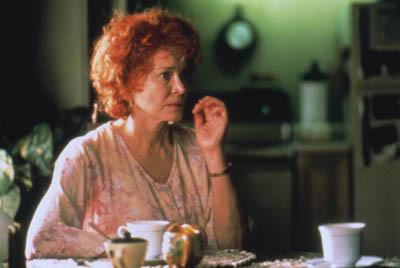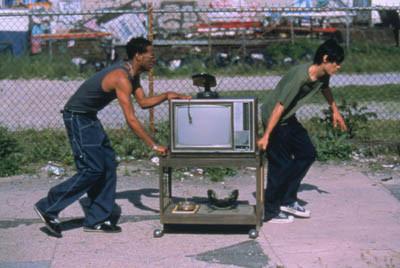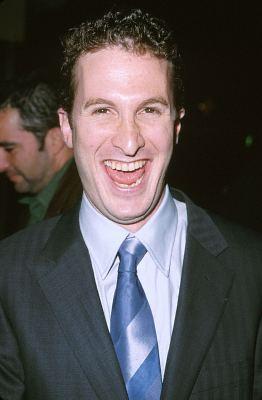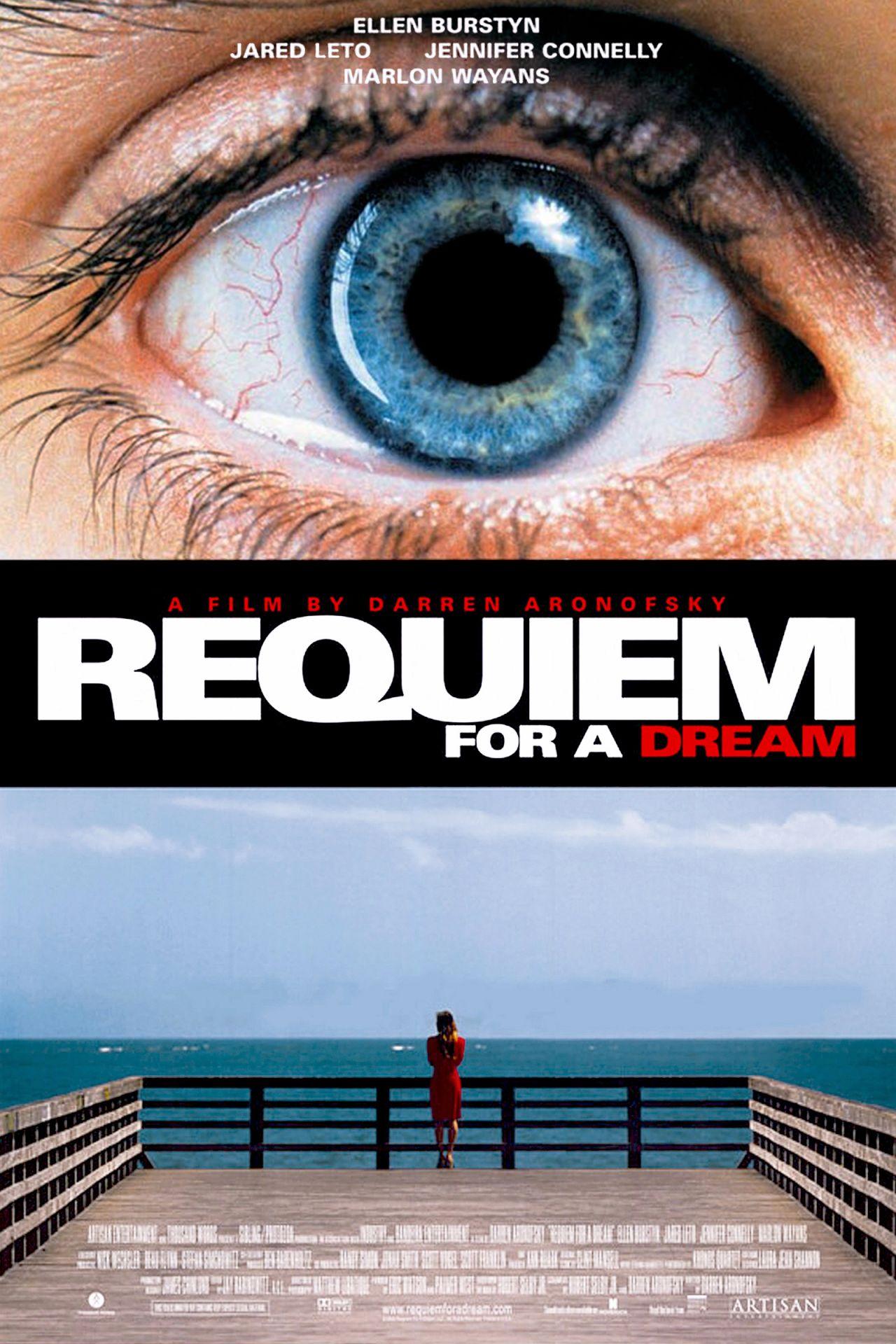Synopsis
In the gritty heart of Brooklyn, Harry Goldfarb and his friend Tyrone Love dream of escaping their mundane lives and achieving something greater. Routine users of drugs, their aspirations rest on making a big break by dealing heroin on the streets. Together with Harry's girlfriend, the aspiring designer Marion Silver, they yearn for a future where their fantasies of success and fulfillment become reality. Their hope is to eventually open a clothing boutique, a venture that promises freedom from their current predicaments.
While Harry dreams of the future, his mother Sara is navigating her own path, albeit a precarious one. Living alone, she finds solace in a TV show and hopes to fit into a beloved red dress for an appearance on television, a prospect that fills her days with meaning once more. Yet, her obsession leads her down a dangerous road as she seeks drastic measures to lose weight, ultimately spiraling into the grips of addiction.
As the vibrant colors of summer fade into autumn, the repercussions of their choices become increasingly apparent. Success starts slipping through Harry and Tyrone’s fingers, incidents outside their control threatening their ambitions. Concurrently, Sara’s reliance on diet pills plunges her deeper into a world of hallucinations, blurring the line between reality and fantasy. Desperate to maintain their dream, Harry seeks ways to keep Marion involved but at a significant emotional cost, fraying the threads of their relationship.
The harsh embrace of winter bears down, forcing each character to confront the harsh reality of their situations. Bound for Florida in search of remedy, Harry's health deteriorates, culminating in an abrupt and life-changing event. Meanwhile, Marion takes desperate steps to satisfy her dependency, entangling her in a perilous web of compromising choices.
Each character's journey is marked by the interplay of hope and despair, desire and destruction. Sara ultimately finds herself isolated, her fantasies unraveling as her reality becomes increasingly dire. As her son's world collapses, Harry finds himself far removed from the dreams that once seemed so attainable. Carrying the weight of his decisions, Tyrone reflects on the long distance he’s traveled from the comforting embrace of home, while Marion seeks solace in fleeting and destructive gratifications.
Although separate in their paths, their lives reflect a stark exploration of the consequences of addiction and the universal longing for meaning. "Requiem for a Dream" is a poignant tale not only of what could be but a haunting reminder of where our choices lead us, their implications reverberating long after the final scene fades to black.
Argument
is a profound cinematic exploration of human vulnerability and the devastating consequences of addiction. This narrative weaves together the lives of four individuals bound by their insatiable desires, illustrating a poignant commentary on dreams, dependencies, and despair.
In the heart of Brooklyn, Harry Goldfarb, portrayed by Jared Leto, and his friend Tyrone Love, played by Marlon Wayans, grapple with the shackles of their monotonous existence. Their days are consumed by a relentless pursuit of temporary escapes through drug use, funded by petty thefts like the habitual pawning of Harry’s mother’s television. As Harry and Tyrone conceive a bold plan to escape their dead-end lives through the selling of heroin, they inadvertently set themselves on a path fraught with peril and moral decay.
Sara Goldfarb, masterfully enacted by Ellen Burstyn, represents another facet of this tragic tale. Living alone as a widow, Sara finds solace in television, specifically infomercials hosted by the enigmatic Tappy Tibbons. Her life becomes overshadowed by her fixation on appearing on television, igniting a fervent aspiration to reclaim the slender figure she once had by trying a radical medication-based weight loss regimen. The consequences of her obsession unravel in a harrowing dance with psychosis, underscoring an overarching theme of unattainable dreams spiraling into nightmares.
Marion Silver, played by Jennifer Connelly, offers a mirror to Harry’s journey. Her strained parental ties and romantic involvement with Harry submerge her into a shared abyss of narcotics use and delusional dreams. Together with Harry and Tyrone, they cherish fantasies of prosperity and ambition—her envisioning a future as a successful clothing designer. Yet, as financial resources dwindle and desperation peaks, their aspirations become cruel illusions, overshadowed by unmet needs and unbridled cravings.
As the seasons change, so too does the worsening spiral of addiction that tightens its grip around their lives. Despite initial fleeting success in their endeavors, Tyrone’s arrest and the depletion of their drug supply propel Harry into the harsh reality of their choices. Marion’s sense of betrayal emerges when Harry permits her to use her relationship with her psychiatrist, Arnold, to secure funds, sacrificing her dignity for a hollow dream.
Meanwhile, Sara’s path ventures deeper into self-destruction. Her obsession with appearance and her growing reliance on diet pills mark her descent into a delusional state. She is engulfed by hallucinations, reducing her once-vivid aspirations to twisted phantoms of her mind. Her fateful journey to a television station in a state of delirium finalizes her capitulation to her demons, culminating in a heart-wrenching submission to institutionalization.
Harry and Tyrone’s desperate trek to Florida serves as the culmination of their grim voyage. The revelation of Harry’s health deterioration, starkly symbolized by the infection on his arm, echoes the physical manifestation of their collective moral and emotional erosion. Confinement becomes their fate, mirroring the inescapable confines of their addictions as Tyrone languishes in the merciless environment of prison work, haunted by racist undertones.
The film’s climax is a cacophony of shattered dreams and stark realities. Marion’s venture into Big Tim’s world signifies a surrender to her addiction's curse; her compliance for drugs irreparably fractures her relationship with Harry. Haunted by the broken promises of affection and mutual dreams, Harry’s eventual amputation is both a literal and figurative testament to loss—the forfeiture of limb, liberty, and love.
His four protagonists, each cocooned in their isolated tragedies, curl into fetal positions—a symbolic retreat into despair—a poignant moment underscoring their collective demise.
The tragic denouement shatters any semblance of hope previously held by the characters. Sara languishes in her hallucinated world where she garners a hollow victory on the imagined Tappy Tibbons show, juxtaposed with a far more shareable delusion; Harry finds purchase in a Coney Island rendered dreamscape, eternally disconnected from Marion's reality. Their reverie is a chilling reminder of the potent allure and perilous undertow of dreams distorted by external substances.
Ultimately, "Requiem for a Dream" challenges viewers to confront the dark undercurrents of ambition when laced with artificial hope. The film’s lasting impact is its unflinching examination of the depths of human suffering, wrought by addictions that imprison its characters in a distorted reality, where dreams are merely cruel caricatures of what they once longed to be.
Cast

Ellen Burstyn
Sara Goldfarb

Jared Leto
Harry Goldfarb

Jennifer Connelly
Marion Silver

Marlon Wayans
Tyrone C. Love

Christopher McDonald
Tappy Tibbons
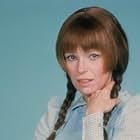
Louise Lasser
Ada

Marcia Jean Kurtz
Rae

Janet Sarno
Mrs. Pearlman

Suzanne Shepherd
Mrs. Scarlini

Joanne Gordon
Mrs. Ovadia

Charlotte Aronofsky
Mrs. Miles

Mark Margolis
Mr. Rabinowitz

Michael Kaycheck
Donut Cop

Jack O'Connell
Corn Dog Stand Boss

Chas Mastin
Lyle Russel

Ajay Naidu
Mailman

Sean Gullette
Arnold The Shrink

Samia Shoaib
Nurse Mall
Multimedia




